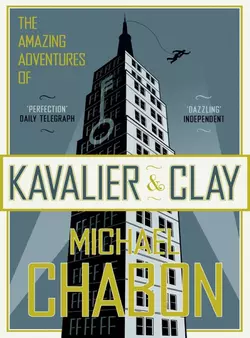The Amazing Adventures of Kavalier and Clay

Michael Chabon
Тип: электронная книга
Жанр: Современная зарубежная литература
Язык: на английском языке
Стоимость: 930.23 ₽
Статус: В продаже
Издательство: HarperCollins
Дата публикации: 16.04.2024
Отзывы: Пока нет Добавить отзыв
О книге: Winner of the 2001 Pulitzer Prize for Fiction from the author ‘Wonder Boys’. ‘The Amazing Adventures of Kavalier & Clay’ is a heart-wrenching story of escape, love and comic-book heroes set in Prague, New York and the Arctic.One night in 1939, Josef Kavalier shuffles into his cousin Sam Clay′s cramped New York bedroom, his nerve-racking escape from Prague finally achieved. Little does he realise that this is the beginning of an extraordinary friendship and even more fruitful business partnership. Together, they create a comic strip called ‘The Escapist’, its superhero a Nazi-busting saviour who liberates the oppressed around the world. ‘The Escapist’ makes their fortune, but Joe can think of only one thing: how can he effect a real-life escape, and free his family from the tyranny of Hitler?Michael Chabon’s exceptional novel is a thrilling tight-rope walk between high comedy and bitter tragedy, and confirms his position as one of the most inventive and daring of contemporary American writers. In Joe Kavalier and Sam Clay, he has created two unforgettable characters bound together by love, family and cartoons.